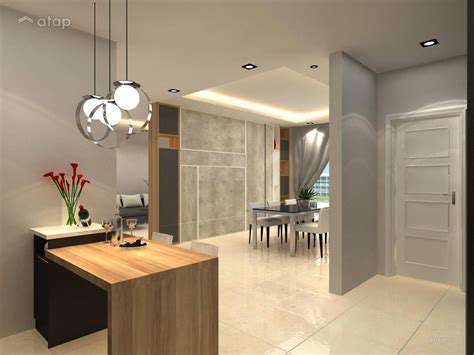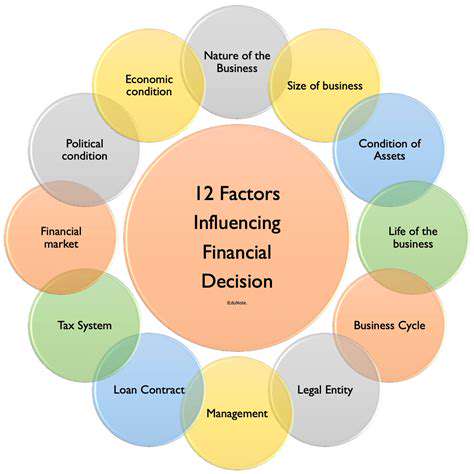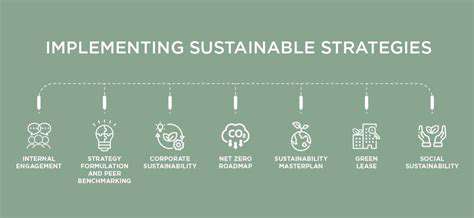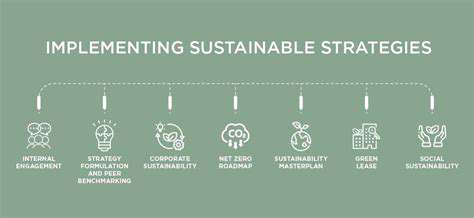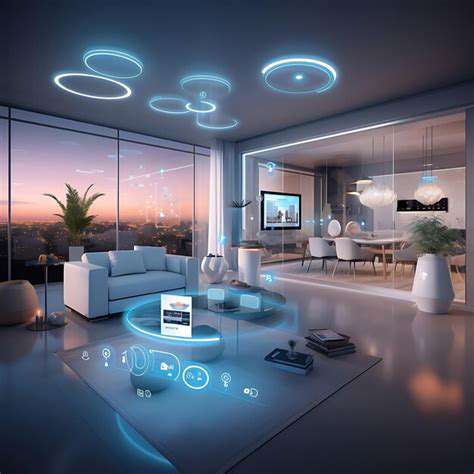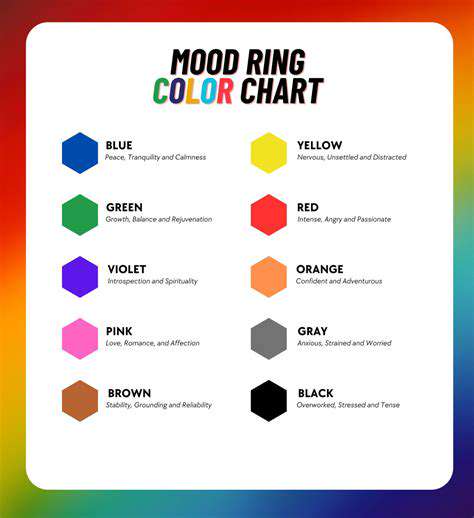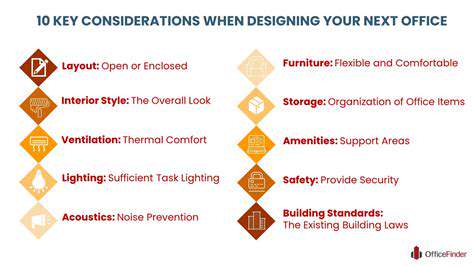Innovative Short Term Rental Design with Customized Theme and Full Package Services
List of Contents
Customized themes enhance guest satisfaction and retention in rentals.
Distinctive themes can increase nightly rates by up to 30%.
Key design elements create cohesive and immersive rental experiences.
Full package services provide comprehensive guest experiences beyond decor.
Effective marketing focuses on unique selling propositions and audience targeting.
Guest feedback helps adapt and enhance rental offerings continuously.
Full package services eliminate coordination hassles for better guest satisfaction.
Customization attracts guests and enhances their stay experience.
Smart home devices improve convenience and energy efficiency in rentals.
AI chatbots provide instant support, reducing response times for inquiries.
CRM systems track preferences and enhance personalized guest experiences.
Contactless check-in systems increase guest satisfaction by 30%.
Data analytics help optimize marketing and service offerings effectively.
Virtual reality enhances guest interactions with property previews.
Digital guides provide personalized local recommendations to guests.
Sustainable materials attract environmentally-conscious renters seeking eco-friendly options.
Energy-efficient solutions reduce costs and appeal to eco-minded guests.
Sustainable waste management practices minimize environmental impact in rentals.
Creating outdoor green spaces improves property appeal and promotes biodiversity.
Educating renters on sustainability fosters eco-friendly practices and community engagement.
Creating Unique Experiences Through Customized Themes

Understanding the Importance of Customized Themes
Customized themes in short-term rental design go beyond mere aesthetics; they create a unique atmosphere that resonates with guests. This approach can significantly enhance Guest satisfaction and retention, resulting in higher booking rates. By aligning the decor and services with the interests of potential guests, owners can differentiate their rental from the competition.
Research indicates that properties featuring distinctive themes can yield up to a 30% increase in nightly rates. This not only boosts revenue but also elevates the guest experience, creating memorable stays that encourage referrals and positive reviews.
Design Elements for Effective Theming
Key design elements such as color schemes, furniture selection, and decor are vital in establishing a cohesive theme. For instance, a coastal theme can be brought to life with blue hues, driftwood furniture, and marine decor. Similarly, a vintage theme can incorporate retro designs and classic furnishings that evoke nostalgia.
Moreover, integrating functional elements, like themed kitchenware or bath products, can further immerse guests in the experience. These thoughtful details show attention to care, enhancing the overall stay and fostering an inviting environment.
Implementing Full Package Services
- Offering streamlined check-in processes
- Providing locally curated experiences and tours
- Including themed welcome packages
Full package services extend beyond decor by providing a comprehensive guest experience. Offerings such as concierge services, local tips, and curated activities are essential components that work synergistically with customized themes. These services create an all-encompassing experience that is hard to match. It's not just about a stay; it's about the memories that guests will take with them.
Marketing Customized Theme Rentals
Effective marketing strategies for Customized Theme Rentals hinge on unique selling propositions. Use high-quality images and engaging descriptions that highlight the theme's special features. By focusing on specific target audiences, such as families or couples, owners can tailor their marketing campaigns accordingly.
Social media platforms can be particularly effective by showcasing previous guests' experiences. Leveraging user-generated content not only adds authenticity but also builds trust with prospective customers.
Evaluating Success and Making Adjustments
Once implemented, it's crucial to evaluate the effectiveness of customized themes and package services. Gather guest feedback and monitor booking trends to assess what works and what doesn't. This method allows for adaptive changes that can keep the rental competitive and appealing.
Regular assessment ensures that the experience remains fresh, making necessary adjustments based on seasonal trends and guest preferences. Ultimately, this commitment to quality can significantly enhance long-term success in the short-term rental market.
Full Package Services: Offering Convenience and Comfort
Understanding the Benefits of Full Package Services
Full package services for short-term rentals provide a one-stop solution tailored to the needs of both guests and property owners. This approach eliminates the hassle of coordinating multiple service providers, ensuring that every aspect of the rental experience is taken care of seamlessly. For instance, services may include professional cleaning, maintenance, and even concierge services, allowing guests to enjoy their stay without worrying about logistical details.
Moreover, integrating these services can significantly enhance guest satisfaction and loyalty. According to a recent survey conducted by Hospitality Insights, properties offering complete services reported a 30% higher return rate among their guests. Such an investment not only leads to a better customer experience but also drives long-term profitability for rental owners. It's a win-win situation that fosters positive relationships and encourages repeat bookings.
Customization and Personalization in Full Package Services
Customization is key when it comes to attracting and retaining guests in the competitive short-term rental market. Full package services can be tailored to reflect the unique identity of the property or the preferences of its target audience. For example, a vacation rental geared towards family gatherings might offer family-oriented activities and amenities, while a luxury property could focus on exclusive experiences and services like private chefs or guided tours.
Owners looking to create a memorable experience should also consider leveraging technology to personalize the services offered. Incorporating preferences gathered through booking platforms can help tailor offerings to individual guests, whether that’s ensuring a stocked kitchen for those who love cooking or providing local guides for the adventurous types. Such attention to detail can enhance guest satisfaction and ultimately lead to more successful rental outcomes.
Leveraging Technology for Enhanced Guest Interaction

Utilizing Smart Home Devices for Enhanced Experiences
Smart home devices have revolutionized the short-term rental industry, allowing property owners to offer an unparalleled level of convenience. By integrating devices such as smart thermostats, lighting controls, and automated blinds, guests can personalize their stay with minimal effort. This level of automation not only improves guest satisfaction but also decreases energy consumption, contributing to sustainability initiatives.
Moreover, these devices can be remotely monitored and controlled, enabling hosts to manage their properties effectively even from afar. For instance, by using mobile applications, they can adjust settings based on guest preferences or receive alerts if unusual activity is detected. This blend of technology and security enhances overall guest interactions, making their stay more enjoyable.
Personalized Communication through AI Chatbots
AI chatbots serve as a pivotal tool in enhancing guest interactions in rental properties. These chatbots can handle inquiries in real time, offering instant support to guests without the delay typical of human response times. With over 70% of consumers preferring to engage with chatbots for quick answers, property owners can significantly reduce response times and improve customer satisfaction.
Leverage Customer Relationship Management (CRM) Systems
- Track guest preferences and behaviors.
- Automate marketing campaigns to enhance engagement.
- Provide personalized experiences based on historical data.
CRM systems can be invaluable for short-term rental operators looking to create lasting connections with guests. By collecting data on past stays, preferences, and feedback, hosts can tailor their services to individual guests. This personalized approach not only encourages repeat bookings but also increases the likelihood of positive reviews.
Integrating Contactless Check-in Solutions
In today’s climate, contactless solutions have become essential. Implementing keyless entry systems streamlines guest check-ins and check-outs, allowing visitors to access their accommodations without physical interaction. According to recent studies, properties that offer contactless check-in experiences see increased guest satisfaction rates by approximately 30%.
This technology is particularly appealing to travelers who prioritize safety and convenience, creating a seamless transition into their temporary homes. The installation of such systems signifies a commitment to modernizing the guest experience.
Harnessing Data Analytics for Improved Services
Data analytics play a crucial role in understanding guest behaviors and preferences. By analyzing patterns such as peak booking times or popular amenities, rental owners can make informed decisions that cater to consumer needs. This proactive approach can lead to enhanced service offerings and optimized marketing strategies.
Furthermore, leveraging analytics software helps owners predict future rental trends, enabling them to adapt their services accordingly. A well-informed strategy guided by data can result in higher occupancy rates and ultimately contribute to the business's bottom line.
Utilizing Virtual Reality for Property Showcases
Virtual reality (VR) technology can significantly enhance guest interactions before they even arrive at the property. By offering virtual tours, potential guests can explore the rental from the comfort of their homes, enabling them to make informed decisions regarding their bookings. This innovative approach can set properties apart in a crowded market.
Moreover, VR can be integrated with personalized themes to showcase unique design features of the rental. For instance, a property with a beach-themed décor can highlight its ocean view and amenities through immersive VR experiences that resonate with guests looking for a coastal retreat.
Creating Comprehensive Digital Guides for Guests
Digital guides enrich the guest experience by providing instant access to important information. These guides can include recommendations for local dining, attractions, and activities tailored to the specific interests of the guests. By offering curated content, hosts can help visitors maximize their stay and discover hidden gems in the area.
Furthermore, incorporating video content and interactive elements makes these digital guides not only informative but also engaging. Guests appreciate the effort, leading to higher satisfaction and positive feedback. This can foster goodwill and encourage repeat visits or referrals to friends and family.
Ensuring Sustainability in Rental Design and Services

Understanding Sustainable Materials
Incorporating Sustainable Materials is crucial for achieving eco-friendly rental design. Some of the most effective and popular materials include bamboo, reclaimed wood, and recycled metals. By using these materials, not only do you reduce the environmental impact of construction, but you also create unique and attractive spaces.
Moreover, recent studies have shown that the demand for sustainable materials is increasing among renters. According to a survey by the Global Sustainability Institute, 70% of potential renters prefer properties that use eco-friendly materials. This trend indicates a significant market shift that property owners should acknowledge and act upon.
- Bamboo is renewable and has a low environmental footprint.
- Reclaimed wood adds charm while reducing waste.
- Low-VOC paints enhance indoor air quality significantly.
Implementing Energy-Efficient Solutions
Energy efficiency plays a pivotal role in the sustainability of rental properties. Installing energy-efficient appliances, such as refrigerators and washers that are rated highly by Energy Star, can drastically cut down on energy usage. These upgrades not only appeal to environmentally-conscious renters but also lead to long-term cost savings.
Additionally, utilizing smart technology, like programmable thermostats, can enhance the energy efficiency of heating and cooling systems. This technology allows renters to monitor and control their energy consumption, thus fostering a culture of conservation within your rental space.
Enhancing Waste Management Practices
Sustainable waste management is a vital aspect of maintaining eco-friendly rental services. By providing composting options alongside recycling bins, property owners can minimize the amount of waste that goes to landfills. A well-structured waste management process can significantly reduce environmental harm and promote sustainability.
- Offer engaging workshops for renters on composting.
- Encourage the use of digital services to reduce paper waste.
- Implement bulk purchasing strategies for shared goods.
Creating Outdoor Green Spaces
Outdoor spaces play a vital role in enhancing the sustainability of rental properties. Creating gardens or green areas contributes to the local ecosystem while providing renters with natural recreational options. Studies from the Environmental Protection Agency indicate that urban green spaces can improve air quality and promote biodiversity.
Furthermore, incorporating native plants into landscaping reduces the need for excessive watering and fertilizers. This not only saves water but also helps keep maintenance costs low. Investing in green spaces not only enhances property appeal but also fosters community engagement.
Educating Renters on Sustainable Practices
Education is key to promoting sustainable living within rental settings. Providing resources such as pamphlets or access to online content that outlines sustainable practices can empower renters to reduce their environmental footprint. Clear guidelines on recycling, energy usage, and sustainable habits can be useful.
Additionally, holding regular meetings or events that focus on sustainability can foster a sense of community among renters. Ideas like carpooling discussions and workshop sessions on energy-saving tips can gain traction quickly. Ultimately, the more informed your renters are, the more likely they are to embrace sustainable practices.
